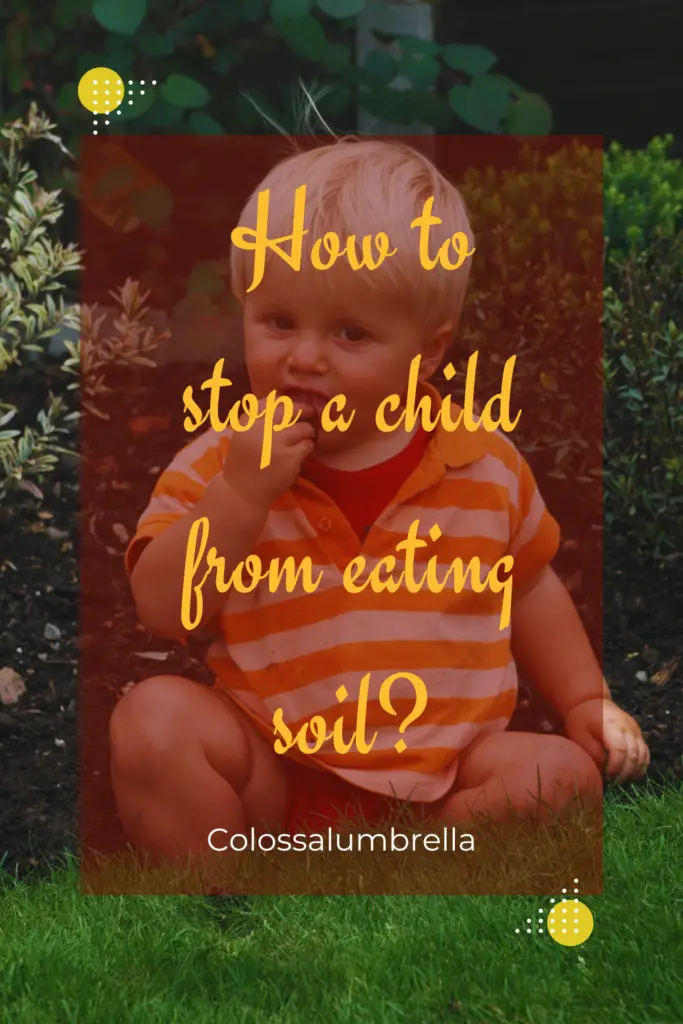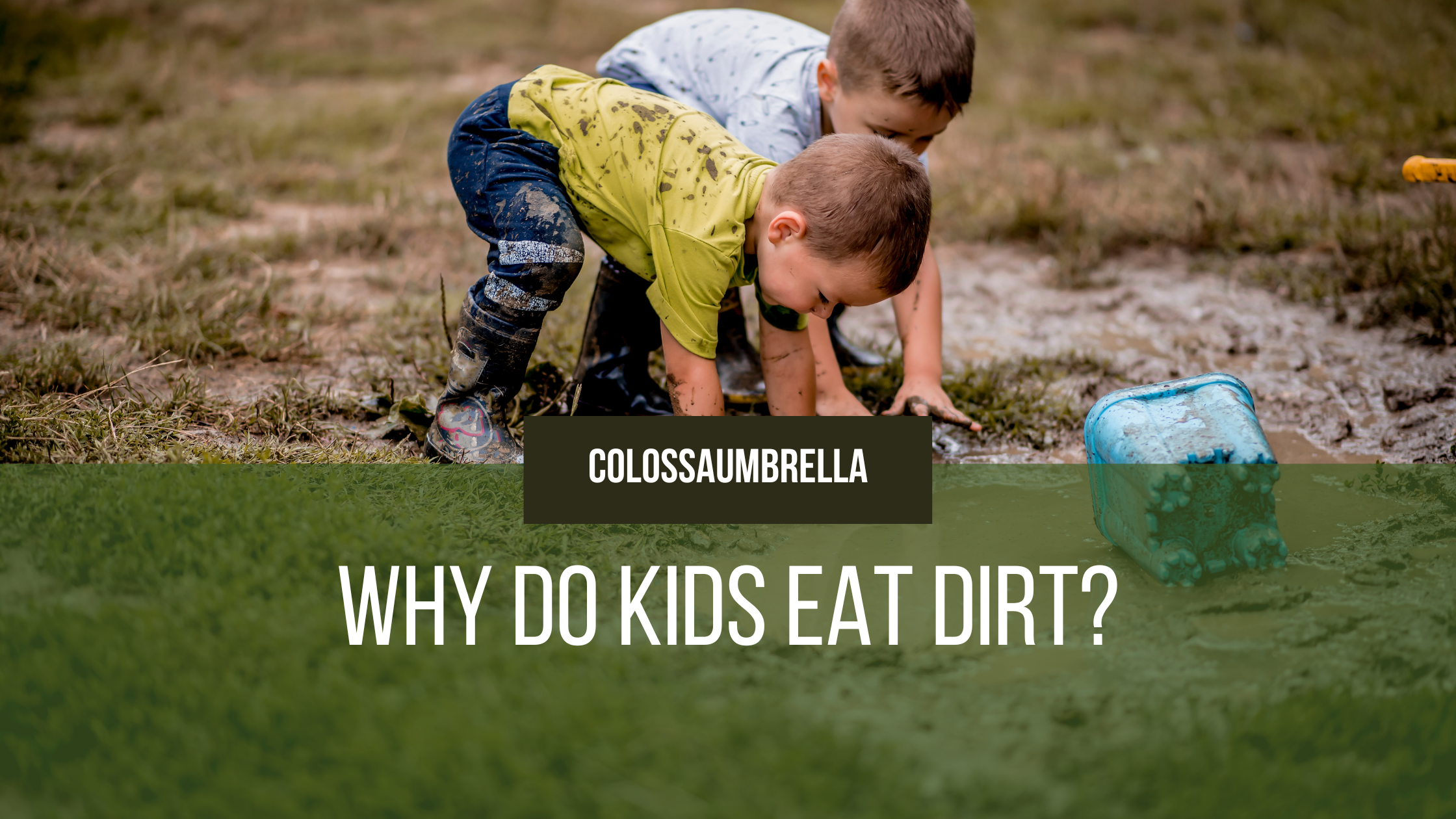If you have a child who appears to be obsessed with eating dirt, you might be wondering what on earth—pun intended—is going on here. Why do kids eat dirt? What does this mean? What is Pica? Is it safe for them to do so? And how can you encourage your child to stop? Below, we explore these questions and more to help you understand why kids love eating dirt.
For most kids, dirt isn’t exactly a favorite food. But for a small minority of kids, that gritty, earthy substance is practically irresistible. This so-called “geophagy” (or “earth eating”) is most commonly seen in young children who have not yet been socialized to the negative stigmas surrounding dirt as well as individuals with mental illnesses and those living in conditions that reduce access to clean water, such as prisons and nursing homes.
Subscribe and get free Coloring Printables and everyday Planner
What is Geophagy?
Geophagy is the act of consuming soil or clay. This practice has been observed in many cultures, and in many animals, including humans. The reasons for this behavior are not completely understood. It may be that some nutrients in soil are difficult to find in other foods, or that the soil is used to mitigate gastrointestinal problems. Geophagy is most commonly seen in young children who have not yet been socialized to the negative stigmas surrounding dirt as well as individuals with mental illnesses and those living in conditions that reduce access to clean water, such as prisons and nursing homes.
Why do kids eat dirt?
In most cases, children who eat dirt are not doing so because they like the taste (many report that it actually tastes bad). Instead, they are likely engaging in a behavior known as pica: an oral-focused compulsion to consume non-food items. This is not an isolated problem, either. Pica is the most common eating disorder among children and is estimated to affect between 5 and 10 percent of kids. It is also more common in boys than girls.
Most children grow out of pica by age 5, with some taking longer to do so. Clinically, pica is classified as either “common” (i.e. kids have pica-like eating patterns but no underlying health issues) or “pathological” (i.e. pica is symptomatic of a nutritional deficiency, other medical condition, or psychological disorder).
Is it safe for kids to eat dirt?
The short answer is: probably not. That said, there is no evidence that eating dirt (on its own) is toxic to humans. Most instances of serious harm associated with geophagy occur in cases where kids eat toxic molds and fungi growing in the soil. This is because a few of the most common toxic soil fungi are Aspergillus, Claviceps, and Penicillium that are harmful to humans.
Popular picks for moms
How to stop a child from eating soil?
If you’re dealing with a child who is eating dirt, you’re probably feeling confused and distressed. Now what? The good news is that handling pica is relatively straightforward. There are several steps you can take to reduce or eliminate your child’s pica-like behavior. First, identify the underlying cause of the pica. What might be triggering your child’s eating of dirt?
If there is a specific reason for your child to be eating soil, you can treat the underlying cause. If not, you can help your child overcome the urge to eat dirt. If your child is engaging in pica because of nutritional deficiencies, you will want to treat the underlying issue with medical intervention as necessary.

When children are young, they have a tendency to put things into their mouths that they shouldn’t be eating. There are many different ways to stop them from doing this. One way is to make sure that they can’t get their hands on certain items, such as dirt and clay. You can also make sure that they aren’t playing in areas where there may be dirt or clay on the ground. You can also try putting something in their mouth to see if it will deter them from eating it. If none of these solutions work, then you should take your child to the doctor and have them checked out. The most common causes of soil ingestion by children include –
- Breaking small rocks into dust-like particles (this is often seen in toddlers)
- Sticking fingers in their mouths after touching dirt or clay (this is common in toddlers and preschoolers)
- Eating mulch or compost (this is often seen in toddlers)
Conclusion
Kids eat dirt for a number of reasons, but the most common is a pica-like urge to consume soil. If your child is eating dirt, it’s important to identify the cause of this eating compulsion so you can address it appropriately. Additionally, you can help reduce your child’s dirt-eating by educating them on the importance of hygiene and safe eating practices. You can also encourage your child to find alternative activities to satisfy the urges behind pica.

Ooohhhh…this is interesting. I had never known that this phenomenon is called geophagy! It’s all so interesting.
I always wondered why kids eat dirt, as I myself also ate it. Interesting to read the different reasons why and how to stop it!
This is an interesting topic and we had this problem a lot of times before. Thank you for sharing about it.
This is a really great and very informative post! This is interesting thanks for sharing this with us!
This is a really valuable piece of information for parents like me. My kids don’t eat dirt but I know some children do. It’s good to know how to address that.
I have never thought about this topic, an interesting read. 🙂
Such an awesome post that is very informative and detailed! This stuff is essential to know and incorporate with our kids to help and prevent them from going sick. Thanks for sharing this with us!
I actually heard of Pica because my sister’s cat surprisingly has it. She eats EVERYTHING. I also remember hearing about pica in theory but not by name. I didn’t know it was so common in children.
Things like this are so intriguing! Mine tasted it out of curiosity, but they didn’t go any further, thankfully. It’s definitely not healthy!
This was a very interesting read. Honestly, I’ve been a parent for years, and I never thought about the why of this. I always thought it was just one of those weird things that kids do.